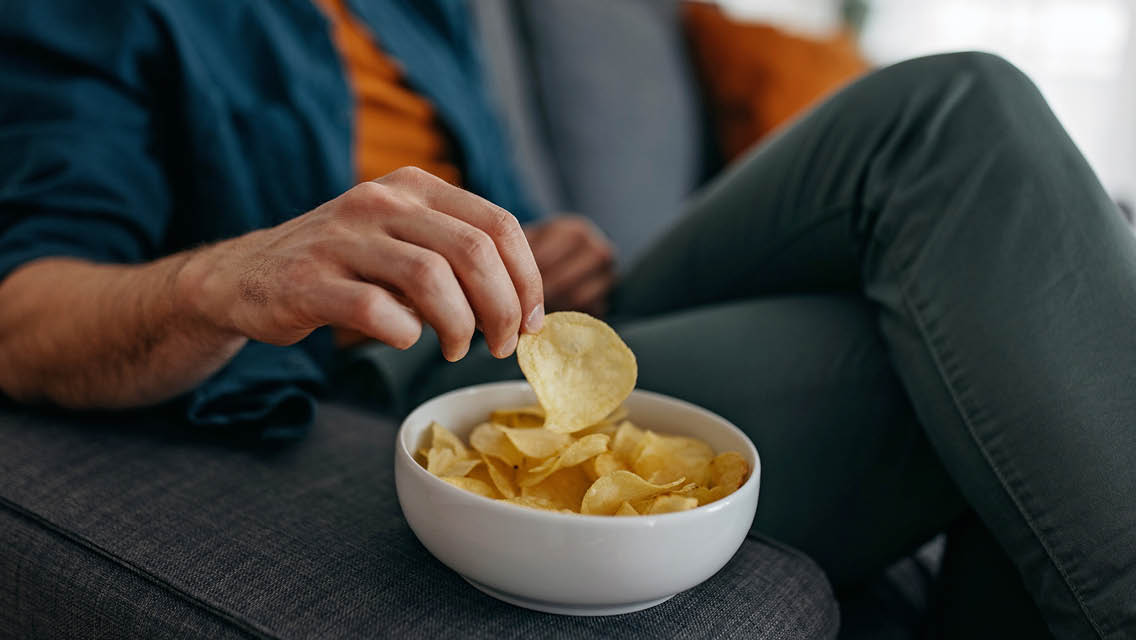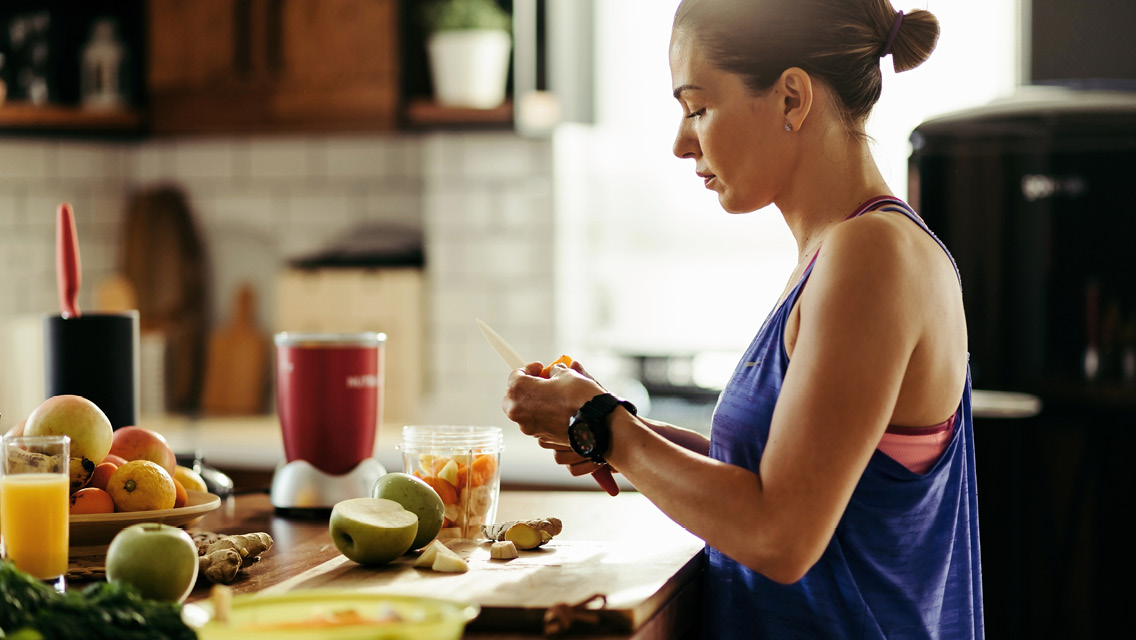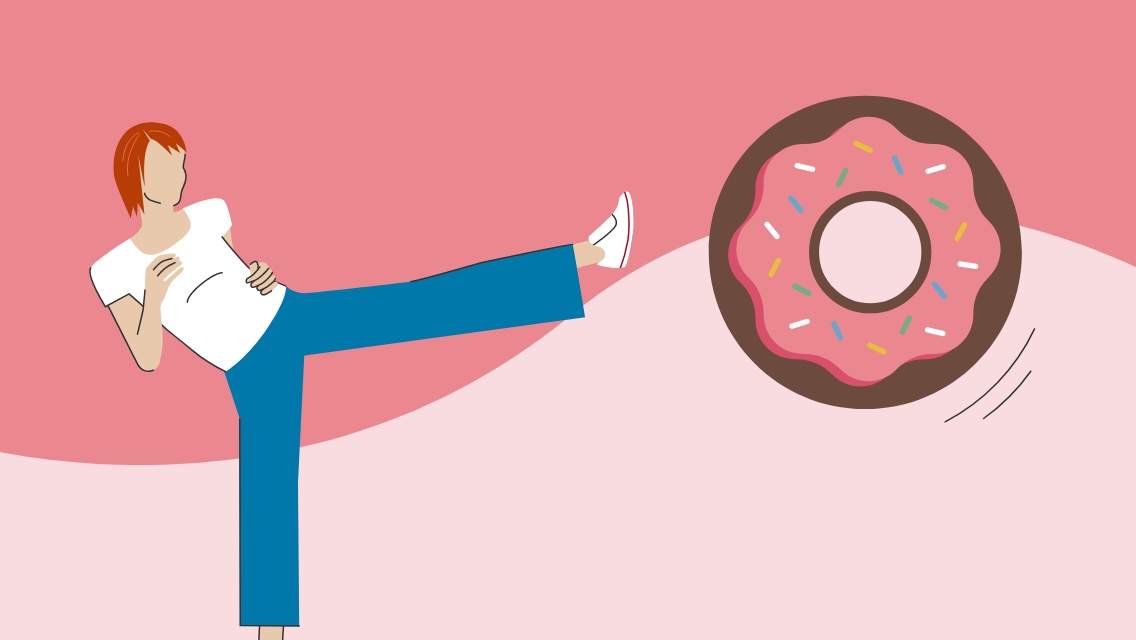As a serious sugar addict still struggling with my “addiction” I know first hand how difficult it is to get off sugar, and to stay off it.
Part of the reason it’s so hard to kick the habit is that over time our brains actually become addicted to the natural opioids that are triggered by sugar consumption. Much like the classic drugs of abuse such as cocaine, alcohol and nicotine, a diet loaded with sugar can generate excessive reward signals in the brain which can override one’s self-control and lead to addiction.
One study out of France, presented at the 2007 annual meeting of the Society for Neuroscience, showed that when rats (who metabolize sugar much like we do) were given the choice between water sweetened with saccharin and intravenous cocaine, 94 percent chose the saccharin water. When the water was sweetened with sucrose (sugar), the same preference was observed — the rats overwhelmingly chose the sugar water. When the rats were offered larger doses of cocaine, it did not alter their preference for the saccharin or sugar water. Even rats addicted to cocaine, switched to sweetened water when given the choice. In other words, intense sweetness was more rewarding to the brain than cocaine.
The American Psychiatric Association defines addiction to include three stages: bingeing, withdrawal and craving. Until recently, the rats had only met two of the elements of addiction, bingeing and withdrawal. But recent experiments by Princeton University scientist, Professor Bart Hoebel and his team showed craving and relapse as well. By showing that excess sugar led not only to bingeing and withdrawal, but to cravings for sweets as well, the final critical component of addiction fell into place and completed the picture of sugar as a highly addictive substance.
In stark contrast to this clinical assessment is the fact that for most of us, “something sweet” is a symbol of love and nurturance. As infants, our first food is lactose, or milk sugar.
Later on, well-intended parents (me included) reward children with sugary snacks, giving them a “treat,” turning a biochemically harmful substance into a comfort food. We become conditioned to need something sweet to feel complete or satisfied and continue to self-medicate with sugar as adults, using it to temporarily boost our mood or energy.
But as any addict knows, one quick fix soon leaves you looking for another — each hit of momentary satisfaction comes with a long term price.
The bottom line is that sugar works the addiction and reward pathways in the brain in much the same way as many illegal drugs. And, like other drugs, it can destroy your health and lead to all sorts of ailments including heart disease, diabetes, high blood pressure, high cholesterol, weight gain, and premature aging (for more on that, see “How Sugar Makes You Sick“).
Sugar is basically a socially acceptable, legal, recreational drug, with deadly consequences — and like with any drug addiction, you have to have a flexible but structured plan to beat it.
Here are 20 tips to help you cope with sugar cravings:
- Eat Regularly: Eat three meals and two snacks or five small meals a day. For many people, if they don’t eat regularly, their blood sugar levels drop, they feel hungry and are more likely to crave sweet sugary snacks.
- Choose Whole Foods: The closer a food is to its original form, the less processed sugar it will contain. Food in its natural form, including fruits and vegetables, usually presents no metabolic problems for a normal body, especially when consumed in variety. (For more information, read “The Whole Thing“).
- Have a Breakfast Of Protein, Fat and Phytonutrients: Breakfast smoothies are ideal for this. The typical breakfast full of carbs and sugary or starchy foods is the worst option since you’ll have cravings all day. Eating a good breakfast is essential to prevent sugar cravings. (For more information, read “Phyto Power“).
- Try To Incorporate Protein/Fat Into Each Meal: This helps control blood sugar levels. Make sure they are healthy sources of each.
- Add Spices: Coriander, cinnamon, nutmeg, cloves and cardamom will naturally sweeten your foods and reduce cravings.
- Take a Good Quality Multivitamin and Mineral Supplement, Omega 3 Fatty Acids and Vitamin D3: Nutrient deficiencies can make cravings worse and the fewer nutrient deficiencies, the fewer cravings. Certain nutrients seem to improve blood sugar control including chromium, vitamin B3 and magnesium.
- Move Your Body: Exercise, dance or do some yoga. Whatever movement you enjoy will help reduce tension, boost your energy and decrease your need for a sugar lift.
- Get Enough Sleep: When we are tired we often use sugar for energy to counteract the exhaustion.
- Do a Detox: My experience has been that when people do a detox, not only does it reset their appetites but it often decreases their sugar cravings. After the initial sugar cravings, which can be overwhelming, our bodies adjust and we won’t even want the sugar anymore and the desire will disappear. (For more information, read “Detox Done Right“).
- Be Mindful of Emotions: Be open to explore the emotional issues around your sugar addiction. Many times our craving for sugar is more for an emotional need that isn’t being met.
- Keep It Out of Reach: Keep sugary snacks out of your house and office. It’s difficult to snack on things that aren’t there!
- Don’t Substitute Artificial Sweeteners for Sugar: This will do little to alter your desire for sweets. If you do need a sweetener, try Stevia, it’s the healthiest. (See “The Trouble With Artificial Sweeteners” for more.)
- Learn to Read Labels: Although I would encourage you to eat as few foods as possible that have labels, educate yourself about what you’re putting into your body. The longer the list of ingredients, the more likely sugar is going to be included on that list. So check the grams of sugar, and choose products with the least sugar per serving. For more information, read “How Health People Decode Labels“.
-
Become Familiar With Sugar Terminology: Recognize that all of these are sweeteners: corn syrup, corn sugar, high fructose corn syrup, sucrose, dextrose, honey, molasses, turbinado sugar and brown sugar.
- Look Out for Sugar in Disguise: Remember that most of the “complex” carbohydrates we consume like bread, bagels and pasta aren’t really complex at all. They are usually highly refined and act just like sugars in the body and are to be avoided.
- Take L-Glutamine: Take 1000-2000mg every couple of hours as necessary. It often relieves sugar cravings as the brain uses it for fuel.
- Take a “Breathing Break:” Find a quiet spot, get comfortable and sit for a few minutes and focus on your breath. After a few minutes of this, the craving will pass.
- Distract Yourself: Go for a walk, if possible, in nature. Cravings usually last for 10-20 minutes maximum. If you can distract yourself with something else, it often passes. The more you do this, the easier it gets and the cravings get easier to deal with.
- Drink Lots of Water: Sometimes drinking water or seltzer water can help with the sugar cravings. Also sometimes what we perceive as a food craving is really thirst. (For more information, read “How to Hydrate“).
- Have a Piece of Fruit: If you give in to your cravings, have a piece of fruit, it should satisfy a sweet craving and is much healthier.
If you follow these guidelines, perhaps you’ll be able to have an occasional “treat.” Be realistic with yourself and remember that a slip is not a failure. Don’t get down on yourself if you slip, just dust yourself off and get back in the saddle. However, if even just a little causes you to lose control, then it’s best to stay away from it completely. And my ultimate tip for sugar-free bliss is to remind ourselves to find and pursue “sweet satisfaction” in nourishing experiences other than food.






This Post Has 0 Comments